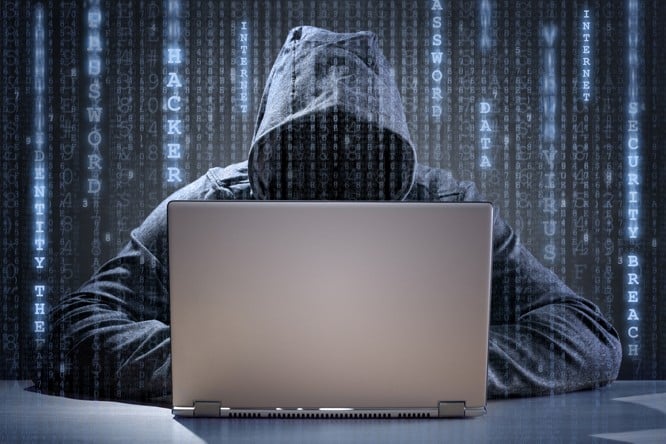
There is a need for an extensive awareness campaign about how to protect data from fraudsters and intruders

Data stored in our personal gadgets (cell phones, laptops) is very important to us. However, some of us use these devices learning the safety protocols. If someone steals our data, it can cause irreparable damage to our lives. Such incidents can leave a lasting impact on one’s psychological and physical health.
Data theft is the act of stealing information from a computer or cellphone without the owner’s permission, with the intent of compromising their privacy or obtaining confidential information. With mobile operating systems -- Android and iOS -- data can be secured through encryption. However, according to the Pakistan Telecommunications Authority (PTA), "Encryption in the form of Virtual Private Networks (VPNs) and encrypted messaging apps is illegal in Pakistan, ostensibly for security reasons as, these conceal communication to the extent that prohibits monitoring."
A representative from Digital Rights Foundation says, "A majority of people in our region use Android. However people are slowly shifting to IPhone, more out of a class complex than on account of a security concern. This practice has to change, people need to understand the importance of the security of their data and how to protect it."
The latest Android phones have automatic encryption, which was not available in earlier versions. Data encryption basically converts data into another form, or code, and only people having access to a secret key (formally called a decryption key) or password can decipher it. Due to this it’s not as easy now to recover your data. However, iOS has always been about securing your data, no one can break into your iOS until there is some vulnerability, so when you buy a new one make sure to look up Settings and check if your encryption is on, particularly if it’s an android phone. You can do it with your existing phone also.
Asif Iqbal, a deputy director at the Cyber Wing of the Federal Investigation Agency, speaking to TNS says, "When you give your cellphone, Tablet or Laptop for repair never leave it unattended. Get it repaired in your presence. In case you sell your gadgets make sure you remove the memory card, save your data somewhere else and format the hard disk; use the factory re-set option for your cell phone. There are hidden files in your cellphone which can be wiped out by softwares like Media Wiper, which is excellent for the purpose," he says, adding, "Once this software is used, nothing can be recovered from your cellphone. When selling your phone make sure to log out of all your social media accounts, Google drives or iCloud, otherwise data may be compromised."
He says women should be even more careful, "Even though everyone should be careful with their data, females should take extra precautionary measures in securing their data."
A repair person at one of the main computer and cell phone sales, services and maintenance markets in Lahore, a repair person, admits on the condition of anonymity that repair men at some service shops steal customer’s data. They pretend to be too busy to repair or update a software. "They ask the customer to leave the gadget with them for a couple of hours. That is when they can download any files."
He says that address books are a prime target. "Sensitive material can be shared and sold to people who are on the lookout for someone’s private pictures and videos."
Shahzad Ahmad, the Bytes for All director says, "Data in your devices is available in three forms: memory card, cell phone memory and cloud. Memory card can be removed but if data is deleted from a phone it can still be retrieved by using software like Recuva. Before handing over or selling your cell phone or laptop, extract your data and then run it through a safe deletion software, e.g., Eraser, Secure Eraser, which overwrites the original data about 9 times and jumbles it up." But he warns, "Even with ‘safe’ deletion software I never recommend selling one’s cellphone."
Regarding the psychological effects of such incidents, Shahzad says, "Once someone has experienced something like this, he or she is depressed, cuts off from the society and can become suicidal. The unfortunate part is, no psychological help available for such victims. Our society needs to understand that the person who has stolen the data is the one who should be ashamed, and not the victim."
According to PTA statistics, till September 2019, there were 162 million Cellphone subscribers in Pakistan. The question is how many of them are aware of data security? There is a need for an extensive education campaign on how to protect data from fraudsters and intruders. It may save many lives. For a start, experts advise strong passwords, not leaving one’s gadgets unattended and secure the data before handing one’s phone to someone else.
How to secure your smartphone
Always secure your smartphone with a strong password
Ensure that your device locks itself automatically
Install security software
Download apps only from approved sources
Check your apps permissions
Don’tdelay operating system updates
Be wary of any links you receive via email or text message
Turn off automatic Wi-Fi connection
When browsing or shopping on your phone (or computer), always look for "https" in the URL instead of "http"
Source: Federal Investigation Agency Of Pakistan